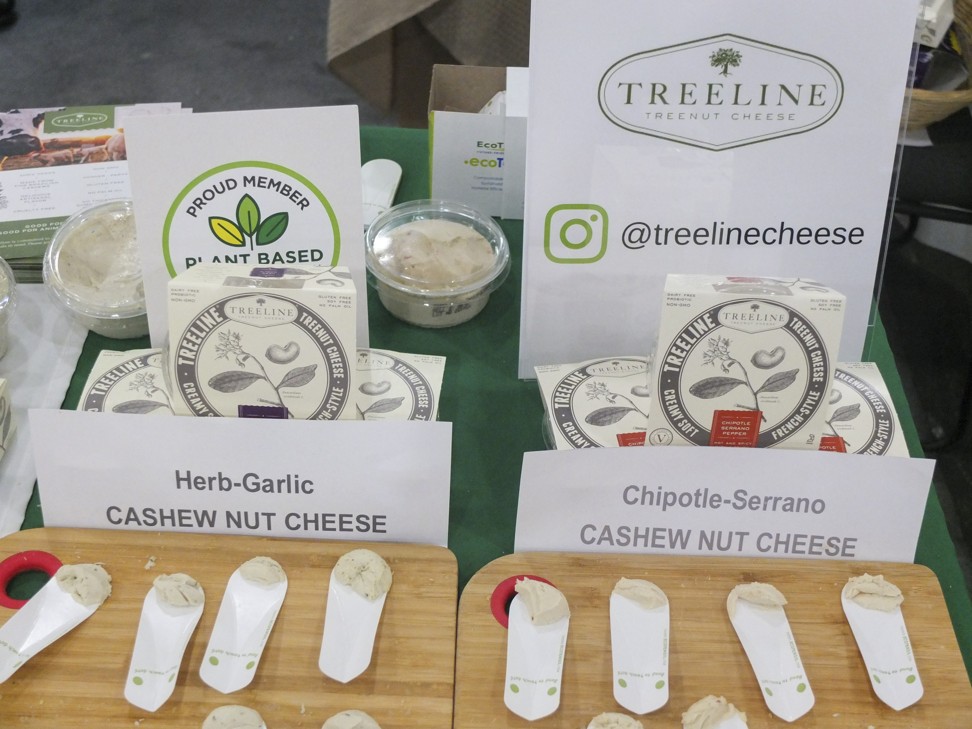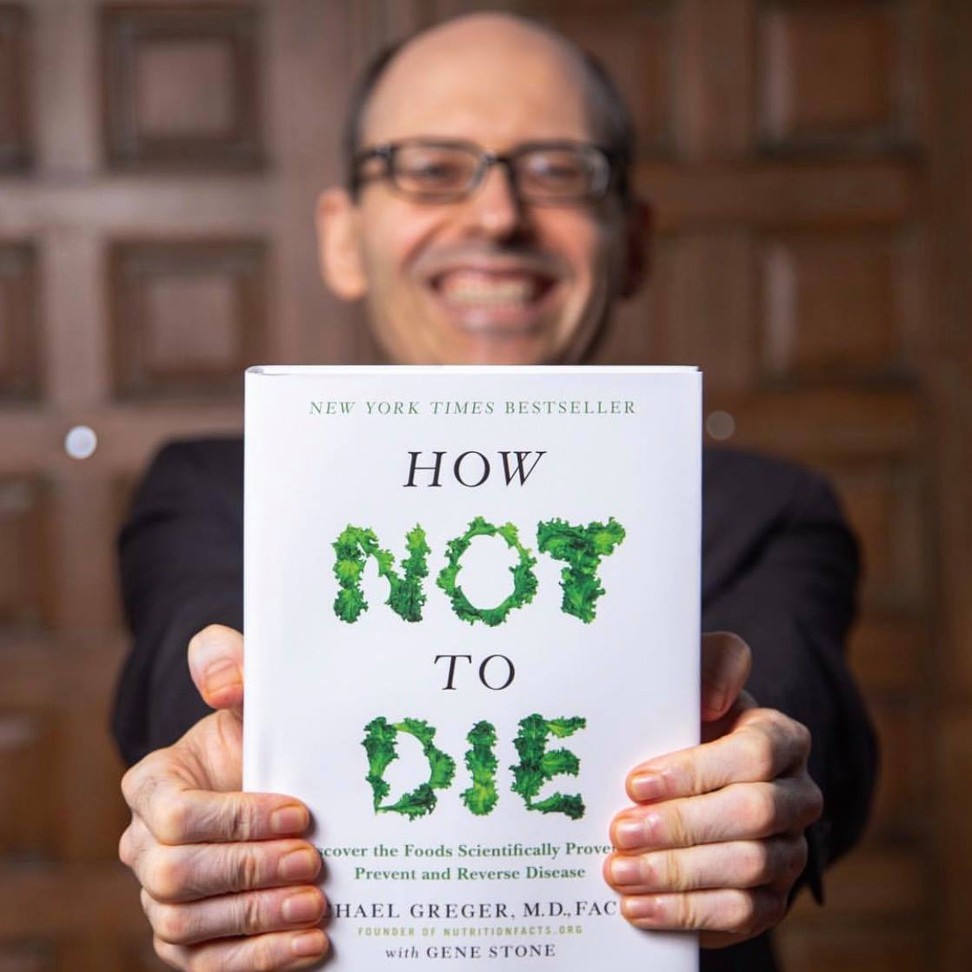
Plant-based meat (for you and your dog), nut cheese and vegan wine to wash them down – the latest food trends
- The inaugural Plant Based World Conference and Expo in New York was a showcase of the latest research and ideas on plant-based meat substitutes
- It covered topics such as how to market plant-based food to mainstream diners, and a health summit heard how eating animal protein increases the risk of cancer

It came as no surprise that some of the concessions at the Jacob K. Javits Convention Centre in New York had shut early. Today, visitors to the centre had come for the inaugural Plant Based World Conference and Expo, and they weren’t interested in hamburgers and hot dogs made from real meat. This was strictly a vegan affair.
The conference was a showcase of the latest research and ideas on plant-based meat substitutes, a growing trend. It covered topics from how to market plant-based food to a mainstream audience to how to convince athletes to adopt a meatless diet. Most noticeably, speakers talked about how to get meat-loving carnivores to switch to plant-based food (it’s as much about the food’s texture as the taste of it, panellists said).
The expo was held in conjunction with a summit on “Food Solutions for Human Health”, which looked at how a plant-based diet could prevent – and even reverse, as some panellists claimed – chronic diseases such as diabetes.
The nascent US meat substitute industry is not geared to lovers of tofu and beans, as evidenced by the conference. It targets those who prefer a meaty burger which is made of plants, or a slice of cheese made from nuts, rice and sesame seeds.

On display was vegan wine to accompany that cheese, which is similar to regular wine except it dispenses with the animal-based fining agents that some winemakers use in the production process.
There was even a plant-based dog food called Wild Earth, set for launch later this year. Your four-legged carnivorous friend will “go wild for plant protein”, says the advertisement’s blurb.

Very little of the food seemed organic – but that was not touted as a selling point. This is probably because some of the plant burgers are processed foods which need additives such as methyl cellulose (present in the popular Beyond Meat burger and Dr Praeger’s All-American Veggie Burger) to serve as emulsifiers and binding agents to stop them falling apart.
Highlights from the summit included talks by leading lights in the plant-based health movement.
Dean Ornish, clinical professor of medicine at the University of California, shared his controversial thinking on how a plant-based diet can reverse some chronic illnesses, not just prevent them. Thomas Colin Campbell, an American biochemist who specialises in the effect of nutrition on long-term health, spoke about his book The China Study – which examines the link between consuming animal products and chronic diseases – and cancer findings.
Clinical nutritionist Michael Greger gave a talk mirroring the title of his bestselling book, How Not to Die, energetically telling attendees how organisations such as the American Medical Association have been slow in approving new techniques and ideas that may prevent diseases.

Also speaking was author and weight-loss doctor Garth Davis, who was critical of teaching methods at medical schools.
“When I was in medical school, we never thought about food. We never looked at the causes of cancer or heart disease,” he said, adding that some diseases share the same underlying causes, and they have a relation to diet.
“When you look at a patient, look at their food,” he continued. “Ask what comes with the steak: heart disease or cancer?”
Davis said doctors should learn more about nutrition given that some research has shown how diet may – and it’s definitely only a “may” in mainstream medicine currently – cause illnesses such as cancer.
If you wait for the [US] Surgeon General’s report [to tell you that animal protein is bad for you] you will be dead
He saved his ire for the animal protein fad, saying too much of it is bad for you.
“Look into the research behind protein,” he said. “People are fed information [about protein] by the food industry, an industry which pays no attention to health.” The information is rarely challenged, he said, because “the medical industry pays no attention to food”.
Consumption of animal protein, Davis said, accelerates ageing and increases the chances of getting cancer. Some scientific studies back up Davis’ claims, but his conclusions currently stand outside the medical mainstream.
Less controversial is the idea that we need less protein than we think – about 43 grams per day for men and 33 grams for women – and we can get it from whatever we eat, rather than having to seek it out in a protein-focused diet. What’s more, Davis said, it is generally accepted that we can get enough protein from just eating plants – we don’t need to get it from meat, as is often believed. Or, as he put it: “Give peas a chance.”

Davis did expound on a popular vegan belief: that humans were not created to eat meat. “We are not carnivores by nature,” he said. “We are aligned to fruit-eating animals.”
Meanwhile, Greger – who is on a mission to compile scientific theories about plant-based diets – spoke about how official medical bodies can be slow to react to studies, noting how it took 7,000 studies before smoking was declared harmful to health.
Greger referenced numerous advertisements and articles from the 1950s which proclaimed the safety of tobacco smoking, alongside some which even said smoking was good for health.
“If you wait for the [US] Surgeon General’s report [to tell you that animal protein is bad for you] you will be dead,” he said.
“There are enough studies telling you to change your eating habits. We can’t wait to be told, we have to take responsibility for our own health and our own diet.”